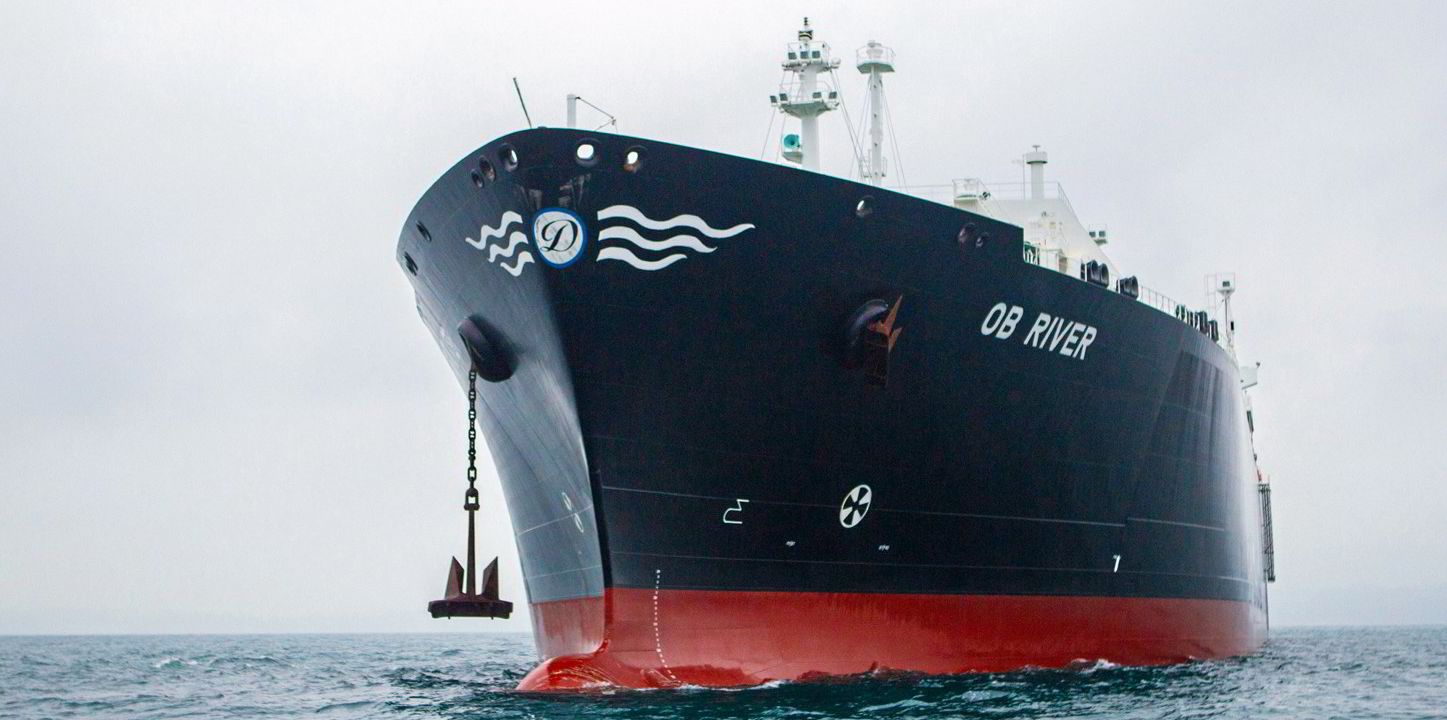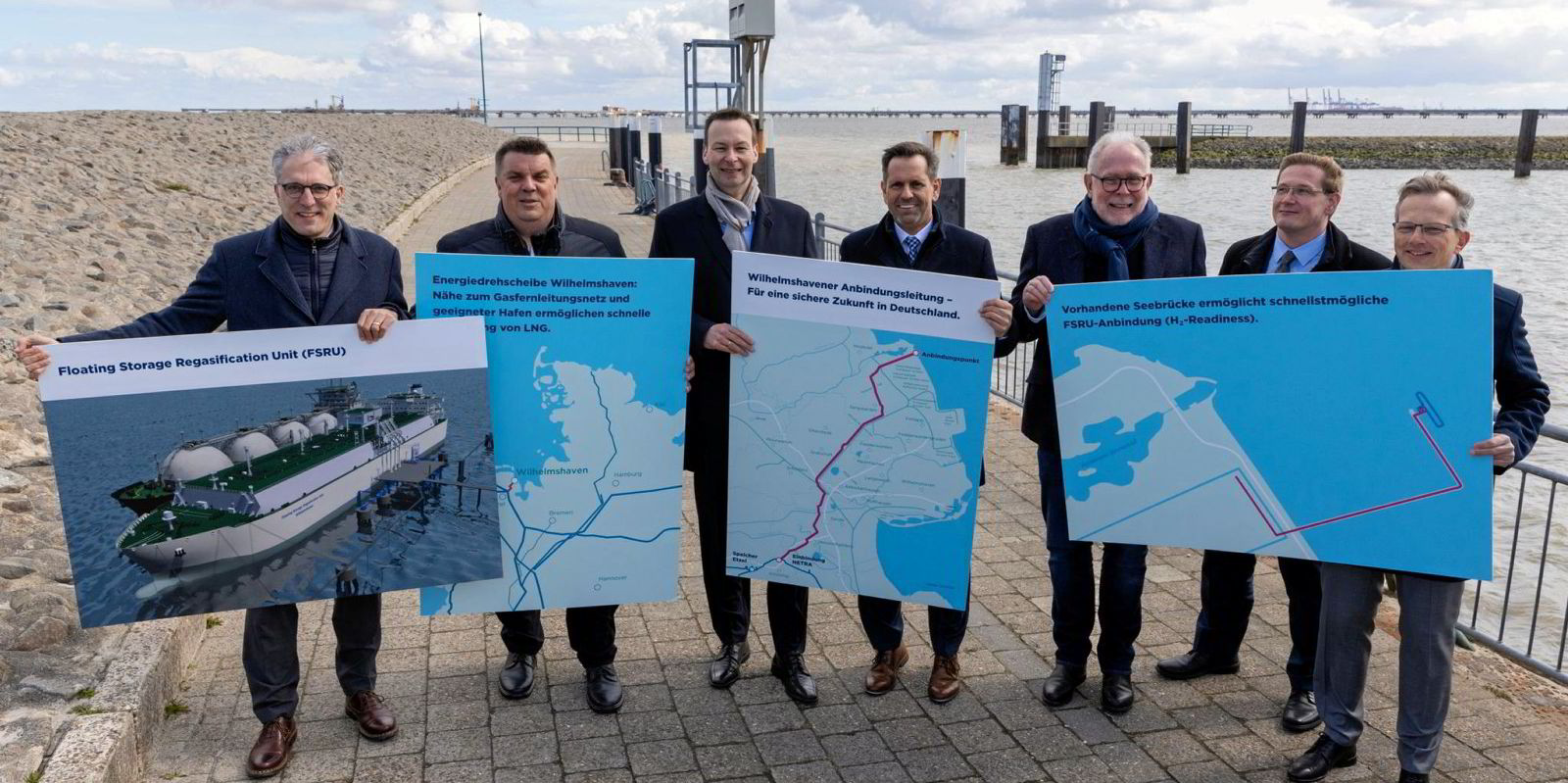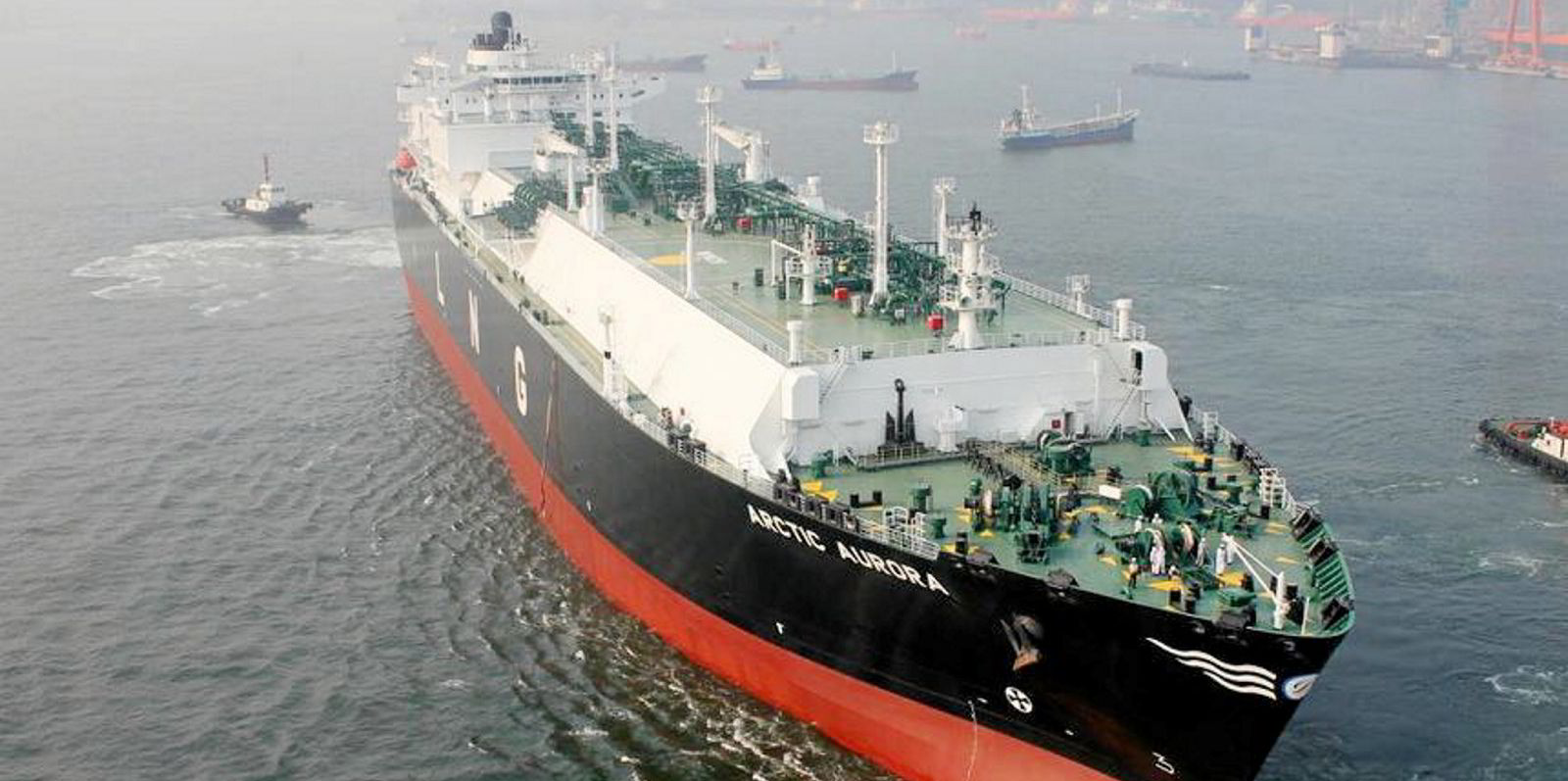Dynagas LNG Partners says three LNG carriers previously chartered to Russian interests are now in effect under the control of the German government.
The 149,700-cbm Clean Energy, Ob River (both built 2007) and Amur River (built 2008) were fixed to Russian state natural gas giant Gazprom until 2026 and 2028.
But the charters have been under the control of Germany’s energy regulator since 4 April after it took control of Gazprom Germania.
The company, the indirect parent of Gazprom Marketing & Trading Singapore, was placed in government hands because it operates critical energy infrastructure in Germany.
Five of Dynagas LNG Partners’ six vessels are on long-term charters involving Russian companies or projects.
The 155,000-cbm Yenisei River and Lena River (both built 2013) are on charters lasting for at least a further 11 years at the Yamal LNG project — a production terminal on the Yamal peninsula in northern Russia.
Yamal is a joint venture controlled by Russia’s Novatek, which includes minority partners Total E&P Yamal, China National Oil & Gas Exploration & Development Corp and Cyprus-based Yaym Ltd.
Dynagas LNG Partners said current US and European Union sanctions regimes do not materially affect the business, operations or financial condition of the partnership.
It said its counterparties are currently “performing their obligations under their respective time charters in compliance with applicable US and EU rules and regulations”.
Dynagas LNG Partners said the full commercial and economic impact of the Russian war in Ukraine is uncertain at this time.
The owner’s sixth ship, the 155,000-cbm Arctic Aurora (built 2013), is on charter to Norwegian oil major Equinor until the first quarter of 2026.
On Monday, the company reported that net income rose by 50% year on year in the first quarter of 2022, to $23.9m.
Dynagas LNG Partners attributed the improvement to the increase in the gain on its interest rate swap transaction compared with a year ago, which was partly offset by a rise in vessel operating expenses and dry-docking and special survey costs.
“We are in a period of high demand for LNG shipping, which we believe will benefit the partnership,” chief executive Tony Lauritzen said.
“We continue our strategy of using our cash flow generation to deleverage our balance sheet and reinforce our liquidity so as to build equity value. This, we believe, will enhance our ability to pursue future growth initiatives.”





